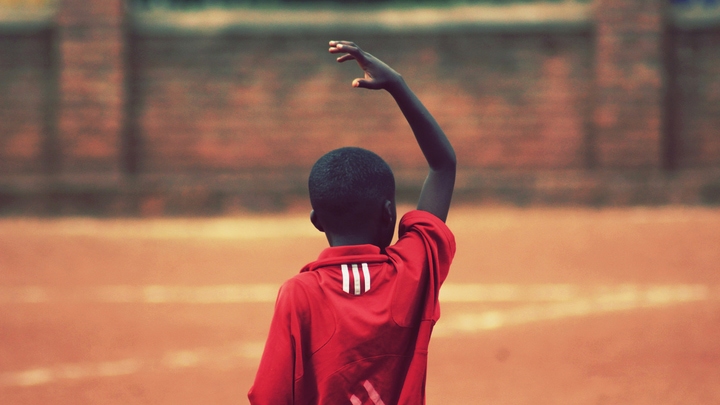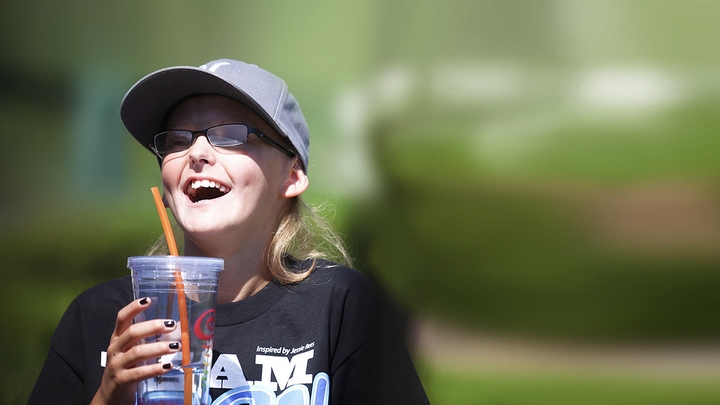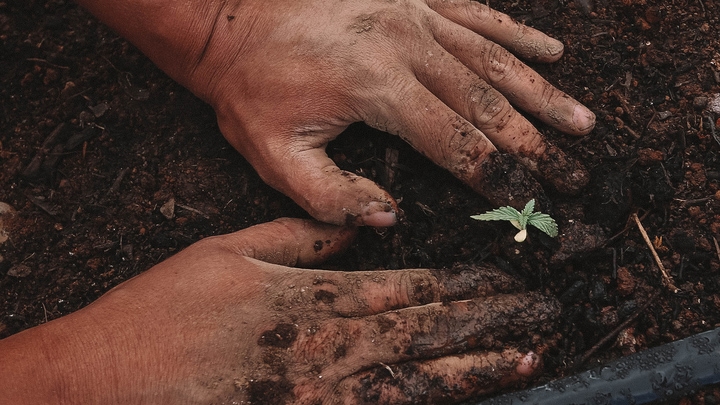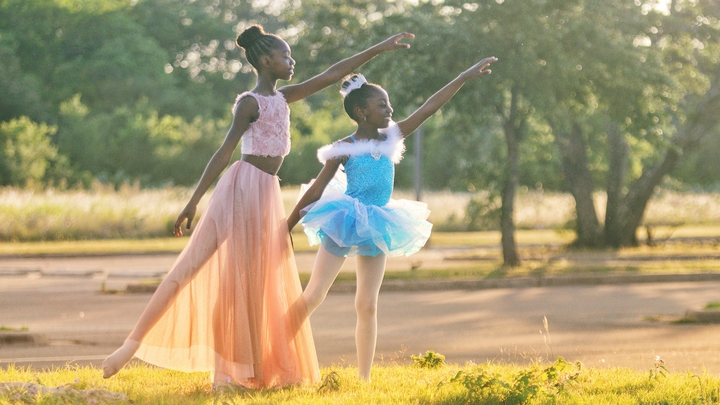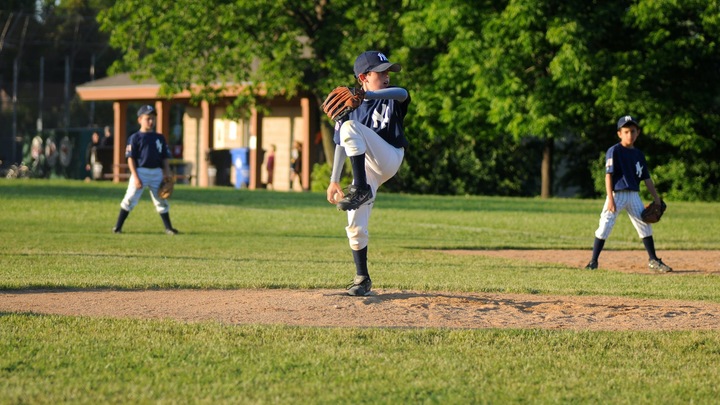Including Everybody Means Everybody.
How Inclusion Films is making movies using crew with developmental disabilities.
Annemarie Carrigan is your typical millennial. She has dreams and plans; she is self-confident and wants to make a difference in the world. And she has Down syndrome. She talks openly about her father being a little too overprotective, but she does smile as she says it, and childhood photographs of the two show just how close they are. Read Story
INCLUSION
Turning Tough News Into Hope.
How 11-year-old Jordan Phillips raised $120,000 to help fund cancer treatment.
When we think of 11-year-old girls and their mothers, the first things that come to mind may be tutus, soccer games, kitchen science experiments and crazy photo faces. There’s a special bond between young girls and their moms before life fills up with more demanding schoolwork, career choices and the stress of being a grown-up. Read Story
DO SOMETHING GREAT
Bigger than Life.
How Premier League superstar Sadio Mané is changing the world beyond soccer.
Sadio Mané is the Senegalese star on Liverpool’s football club in the Premier League. In 2019, he was crowned Africa’s greatest player. To watch him play is to be in awe. His speed, direction changes and vision of the field are almost otherworldly. He competes with intensity but is so fluid it seems as if opposing players are somehow weighed down, and the ball is magically attracted to Sadio. Read Story
GIVE YOUR BEST
Fix it Yourself.
How one couple moved hundreds of miles from home to run a center for pregnant teenage girls.
Drew and Cindy are unassuming and polite, and they go about their business without judgment. Drew was a contractor in the Midwest and made a good living. He’s barrel-chested and has the thick forearms and fingers of a man who has worked with his hands for decades. Read Story
INITIATIVE
Courage in a New World.
The story of Stagecoach Mary, the first Black woman to deliver mail in the Wild West.
We like our heroes larger than life, and we like them to be uncompromising in their determination. Mary Fields was tall, and as a recently freed slave in the 1860s, she was also fearless. Read Story
GRIT
Never, Ever Give Up.
The incredible story of the 12-year-old cancer patient who brings joy to half a million children fighting cancer.
Life can feel terribly unfair. And yet for some people, when life hands them the worst possible circumstance, they are at their absolute best. Jessie Joy Rees is just such a person. Read Story
NEVER EVER GIVE UP
Sometimes the Wrong Direction is the Right Way.
How a wrong number, a wrong text and a mix-up led to long-lasting friendships.
Life can be unpredictable, and some of those turns enrich us in ways that wouldn’t have happened if we were all as perfect as an Instagram post. Read Story
MAKE A NEW FRIEND
The Little Things that Make the Biggest Difference.
How one man created a forest the size of Central Park by planting one tree a day.
It’s hard to imagine the impact of the little things we do in our daily lives. A few degrees in course correction today could put us in a completely different universe in a few years. And that’s a good thing. Read Story
CARING
The Brotherhood in Sports Goes Beyond the Field.
How a men’s rugby team supported one of their own.
Rugby, they say, is a gentleman’s game played by hooligans. The game itself is based on warfare, with one side controlling territory and fighting for more. Read Story
LIFT
Something Healthy for All of Us
How 17-year-old Gloria Barron Prize Winners Annie and Shirley Zhu provide fresh food for 1,400 people a year.
Most of us have memories from childhood that go something like this: You’re not leaving the table until you eat all your vegetables.How lucky we were to have nutritious food, even if we had to learn to like it. According to the Houston Health Department, for nearly one-quarter of children living in Houston, Texas, the choice to eat healthy doesn’t exist. Read Story
BE HEALTHY
More Than Just Dancing
How inclusion helps overcome mental illness.
JuJu loved to dance. She had a smile that filled the room and moved as if she was actually creating the music. But when she was away from her high school dance class, she was more reserved, a little bit guarded — something the group of girls in her class noticed. Read Story
INCLUSION
Let the Kids Give it a Try
How 17-year-old Dasia Taylor developed sutures that detect infection.
Dasia Taylor is your typical high school student, with one exception. She cares about the rest of the world — and she’s doing something about it. Read Story
SCIENCE
Billy Mills
The story behind America’s first and only 10,000-meter Olympic champion.
Billy Mills was born on the Pine Ridge Indian Reservation for the Oglala Lakota people. His mother died when he was 9 years old. Hurting from the loss, young Billy took up sports, believing an article given to him by a Jesuit priest that stated that Olympians are chosen by the gods. Read Story
BELIEVE IN YOURSELF
Beatrice Shilling
The motorcycle daredevil who became a mechanical engineer and saved the lives of countless pilots in WWll.
Beatrice “Tilly” Shilling had a penchant for speed. In 1913, at age 14, she bought her first motorcycle. She tinkered with it and roared around the English countryside, eventually racing for the British Motorcycle Racing Club. Read Story
ENCOURAGEMENT
The Art of Pitching.
A little confidence at the right time goes a long way.
Summertime brings out miniature baseball players, sliding in the dust, chasing errant balls and constantly adjusting caps. It is the season for kids to be out in the sun, working on eye-hand coordination and, most importantly, dugout chants. A game with so much time spent standing around requires clever chants to keep young minds occupied. Read Story


